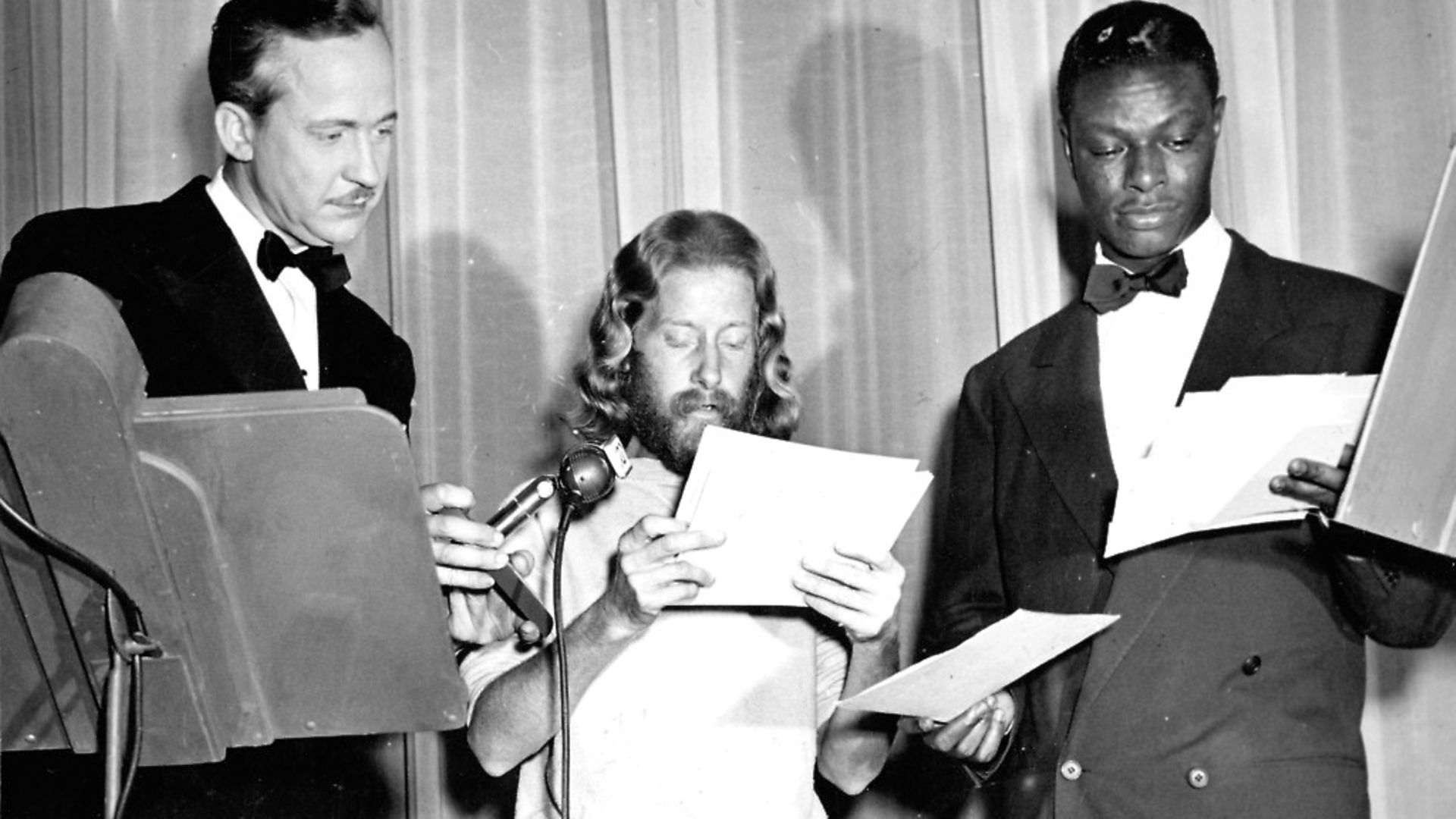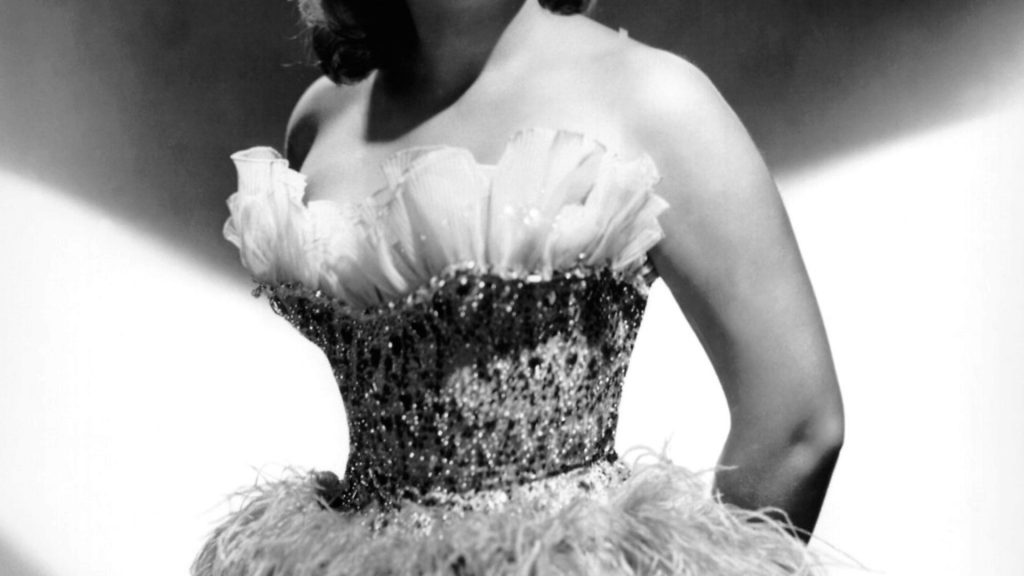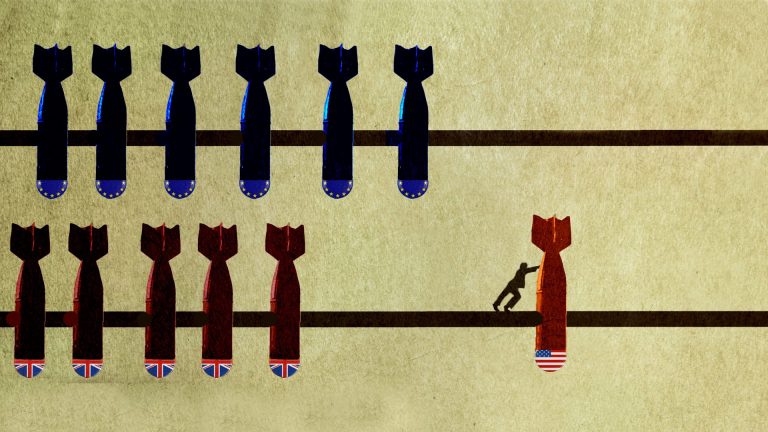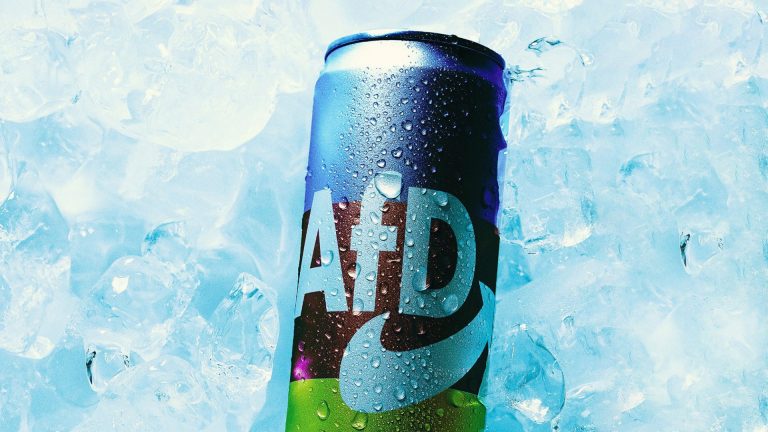
While the charts were filled with much that was bland, 1948’s standout hits displayed technical innovation and an inspired slice of weirdness.

The war may have been over, but in 1948 new enmities were formed. The partition of India caused a refugee crisis and widespread violence, including the assassination of Gandhi in January. And Korea too separated into two states, soon to go to war with each other.
The Arab-Israeli War inflicted lasting wounds, and the triumph of ethnic nationalists in May’s South African election saw the dawn of apartheid. But as nations separated, others united, as the Congress of Europe met in the Hague and the Treaty of Brussels formed an anti-Soviet alliance of Britain, France and the Benelux countries.
The coup d’état in Czechoslovakia, mass deportations in Lithuania and the Berlin Blockade proved the magnitude of the Soviet threat, and while the Marshall Plan, signed in April, sought to act as an economic bulwark against Soviet expansion, the red menace was feared to be at the heart of the US government itself, the House Committee on Un-American Activities hearing accusations that several government officials were Soviet spies.
Away from the machinations of governments, there were efforts to improve lives globally, as the WHO was founded and the United Nations General Assembly adopted the Universal Declaration of Human Rights. And, as the Olympics were staged in London on a shoestring budget, the world’s eyes turned on a changing Britain, as the NHS was founded, the railways and utilities were nationalised and the Empire Windrush arrived at Tilbury.
There was a feeling of change in music too, as Columbia Records introduced the 33rpm LP in June, transforming music sales, and while an easy listening feeling dominated, the year’s biggest singles were weird outliers that proved that novelty, technology and prescience are always well-rewarded on the charts.
As a big band trombonist for the likes of Paul Whiteman and Glen Gray, Pee Wee Hunt had had a successful, if relatively low-key career up until the war, when he worked first as a DJ in Hollywood and then served in the Coast Guard. It was only in the late 1940s, having returned to the West Coast music scene and formed his own Dixieland band, that the spotlight turned on him, with an old song giving him a massive hit.
Twelfth Street Rag dated back to the First World War, and had already been much-recorded, including in a slow-tempo version by Louis Armstrong for Okeh Records back in 1927, and in a fast but smooth style by Count Basie’s later bandleader, Bennie Moten, on RCA Victor the same year. When Hunt’s band played a jokey, deliberately amateurish and brash version of it at the Hollywood Palladium, the audience reaction to it was so rapturous that Hunt resolved to record it.
When the song came out on Capitol Records it became a runaway hit – the biggest record of the year and the best-selling ragtime record ever, shifting three million copies. While Hunt went on to have a No.3 single with Ted Lewis’ 1920 hit Oh! five years later – selling a million copies of this smooth, rather Glenn Millerish, he would thereafter slowly fade into obscurity. Yet, so well-known was Hunt’s name six years after the triumph of Twelfth Street Rag that the Tex Avery cartoon Dixieland Droopy featured a trombone-playing flea called Pee Wee Runt.
Nat King Cole had already had a No.1 in 1946 with (I Love You) For Sentimental Reasons when the strange and epic Nature Boy hit the top of the Billboard chart in mid-1948. It would be second only to Pee Wee Hunt’s hit record in terms of sales that year.
That it was unmistakably based on the template of a Yiddish folk song was hardly uncommon in the history of American popular music, but the message of the lyrics was extremely unusual for a mainstream song, particularly one delivered in Cole’s smooth tones.
Nature Boy was written by Eden Ahbez, one of the most remarkable musical figures of the first half of the 20th century. Born George Aberle in Brooklyn in 1908, Ahbez spent his early life in the Hebrew Orphan Asylum and was later adopted by a family in Kansas. There he became a pianist and bandleader before dropping out, wandering all over the States during the period of the Great Depression, and ending up hanging around the West Coast.
Falling in with a group of proto-hippy non-conformists calling themselves the Californian Nature Boys, he changed his name and adopted a form of life familiar to the counter-cultural generation of 20 years later. By 1947 he was living camped out under the Hollywood sign, surviving on $3 a week and a vegetable-only diet.
This was the unlikely figure who supplied a best-seller, which became an enduring standard, to a singing legend. The exact circumstances in which this complete outsider, in every sense, was able to contact Cole are disputed, although one version has him collaring the star at the stage door of LA’s Lincoln Theatre some time in 1947 and handing him the sheet music. In May 1948, the Brooklyn Daily Eagle reported that Ahbez had given 30% of his royalties from the song to the stage doorman who had facilitated this meeting, literally opening a door for him when everyone else was ‘slamming doors in his face’.
The song cast Ahbez’s own story in mystical tones, speaking of ‘A very strange enchanted boy’ who ‘wandered very far over land and sea’ and had gained wisdom, chiefly in the form of his teaching ‘The greatest thing you’ll ever learn/ Is just to love and be loved in return’, a contender for the purest lyric in musical history.
When Nature Boy became the hit of the summer of 1948, spending eight weeks at No.1, Ahbez’s drop-out idyll was shattered, although success was not altogether without its rewards.
In December 1948, Life magazine, which had dubbed him the ‘Yoga Tunesmith’ when the unusual lifestyle of the writer of this huge hit was revealed, reported that Ahbez had been paid $10,000 for the use of the song in flop film The Boy With Green Hair, the same amount of money Ahbez reportedly offered Yiddish songwriter Herman Yablokoff to drop an ultimately successful lawsuit against him claiming he had plagiarised the melody of Nature Boy. But Ahbez had established a reputation with the song that won him later writing work with stars of the day, Frankie Laine and Sam Cooke among them, and he would become an acquaintance of key musical figures of the 1960s such as Brian Wilson and Donovan, having anticipated so much of what went on in that decade.
He released his own invariably strange material in the 1960s, including his only solo LP, Eden’s Island, setting spoken word poetry to music augmented with the sounds of nature. For Cole, meanwhile, Nature Boy had been the springboard on to ever greater things, as two years later Mona Lisa would be a mega-hit and the No.1 song of 1950.
After signing with Mercury Records and releasing a clutch of unsuccessful singles the previous year, Patti Page was just 20 when she scored her first hit in 1948, changing the history of recording technology in the process. Confess had already been recorded by Nat King Cole, and Doris Day and Buddy Clarke’s duet version had been a hit on its November 1947 release. That version was playful and anodyne with a typically 1940s big band backing, but when Page came to record the song for release in June 1948 its feel was very different.
Slower and more jazz-oriented, Page’s sparse and smoky version was seductively melancholic, and new technology contributed to making the song so ethereally beautiful. The previous year, the idiosyncratic instrumental group the Harmonicats had made heavy use of reverb on their Peg o’ My Heart, creating a very new sound, and Page’s use of reverb on Confess was also an early use of the effect, giving the record huge atmosphere. Popular music would never be the same again as reverb became a ubiquitous part of the atmospherics of popular music.
But the real innovation of Confess was another technological change – multi-track overdubbing. Overdubbing was only made possible by the new technique of recording on magnetic tape, one pioneered by Les Paul and used on his February 1948 release, Lover, where he played all six guitar parts.
On Confess, overdubbing was used to give the effect of Page duetting with herself. This was not just a novelty, as the absence of a male counterpart gave the song a strong sense of introspection and longing. Page was rewarded with a No.12 chart position and the single was her breakthrough.
Overdubbing became something of a signature technique in Page’s early output, with the following year’s Money, Marbles and Chalk featuring Page singing all the parts in a four-part harmony, a trick repeated again on 1950’s With My Eyes Wide Open, I’m Dreaming. But it was on November 1950’s Tennessee Waltz that Page put that technique to best effect. The song had been first recorded by its writer, country singer Pee Wee King, in a version released in January 1948 and it was quickly followed by 1948 covers by Cowboy Copas and Roy Acuff. But Page’s version, replacing the country fiddle in the opening bars for a jazz trumpet, took the song in a pop direction and used a quartet of Pages to sing the woeful tale of the loss of her ‘little’ darling’ to an ’old friend’ as they waltzed. Page’s Tennessee Waltz became one of the biggest-selling singles of all time, working its way into the fabric of American popular music.
The wartime era was slowly being left behind as the world inched towards a new decade where the allegiances and enmities just forming in 1948 would fully develop. And for music too, the year had provided a glimpse of what was to come in the rock ‘n’ roll era, when fun, the expanding capabilities of technology and new lifestyle philosophies drove the sound that changed the world.









